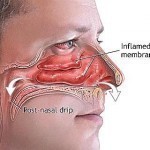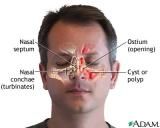Treatments For Sinus Infection Symptoms

Sinus Infection: Causes, Symptoms and Treatment. A sinus infection is usually caused by a strain of bacteria that infects the nasal mucosa. Sometimes an overgrowth of bacteria called streptococci, also known as strep throat, can be the source of the infection.
Many symptoms of a sinus infection include nasal congestion. This may be due to either too much mucus in the area around the nose, or a sign of an infection in the sinuses themselves. Other symptoms include headache, fever, or chills. All of these symptoms are common with sinusitis and other infections of the nose and throat.
If you have a sinus infection, you need to get a thorough examination. Your doctor will need to do a physical exam to determine if your sinus infection is a simple sinus infection or if there is a serious health problem. If your doctor determines that you do have a sinus infection, they will most likely prescribe antibiotics for you. Antibiotics help heal the infection and reduce the chance of a new one. Your doctor may even recommend surgery, depending on what kind of infection you have and how severe it is.
Fortunately, most of the symptoms of a sinus infection are fairly mild. The treatment you receive depends on the severity of the infection. The most common treatments for sinusitis are nasal sprays, decongestants, and nasal drops.
Nasal sprays: These medications are usually taken every day to reduce inflammation and relieve pain associated with sinus infections. They work to prevent swelling and blockage of the sinuses. Nasal sprays are usually combined with decongestants, which dilate the nasal passage, allowing drainage from the sinuses. They are often combined with decongestants to relieve pain and relieve nasal congestion.
Decongestants: These medicines improve airflow by reducing inflammation and mucus production in the nasal passages. They are usually taken once or twice a day to provide temporary relief nasal congestion. A combination of decongestants and nasal drops can help clear up mucus buildup and reduce pain caused by sinus infections, which is why they are often combined with nasal sprays and antibiotics.

Nasal drops: These fluids are usually prescribed to reduce the level of fluid that collects in the nasal passages. They come in the form of nasal sprays and drops. When taken regularly, they can help clear the nasal passage, reduce mucus buildup, and promote the growth of healthy bacteria.
In some cases, antibiotics and decongestants are not effective in treating the symptoms of a sinus infection. In this situation, your doctor may need to do additional tests to find the root cause of your sinusitis.
Nasal X-ray: This test uses ultrasound to look inside the nose to determine the location and severity of a sinus infection. When a sinus infection causes mucus to thicken, it is usually found in the back of the throat. However, other areas of the nasal passages, such as the lining of the mouth, can also show signs of infection. If the infection is serious, the doctor will do a CT scan to look at the bones in your nose.
X-rays can also be helpful in detecting sinus infections behind the eyes or in the mouth. When an x-ray does not show a sinus infection, doctors may perform bronchoscopy or endoscopy. to see if anything is blocking the passage.
Other tests may include an esophagoscopy to determine if the lining in the lower esophagus is thickening, or a colonoscopy to see if inflammation occurs in the abdomen or intestines. An abdominal ultrasound may be performed to check if infected material has entered the lungs. If symptoms persist, your doctor may order additional tests to determine the exact cause of the infection.
Most of the time, when the symptoms of a sinus infection go away, antibiotics will clear up the sinus infection. Antibiotics are usually effective for minor sinusitis and preventing it from coming back. However, if the infection recurs, decongestants and nasal drops are good choices.
